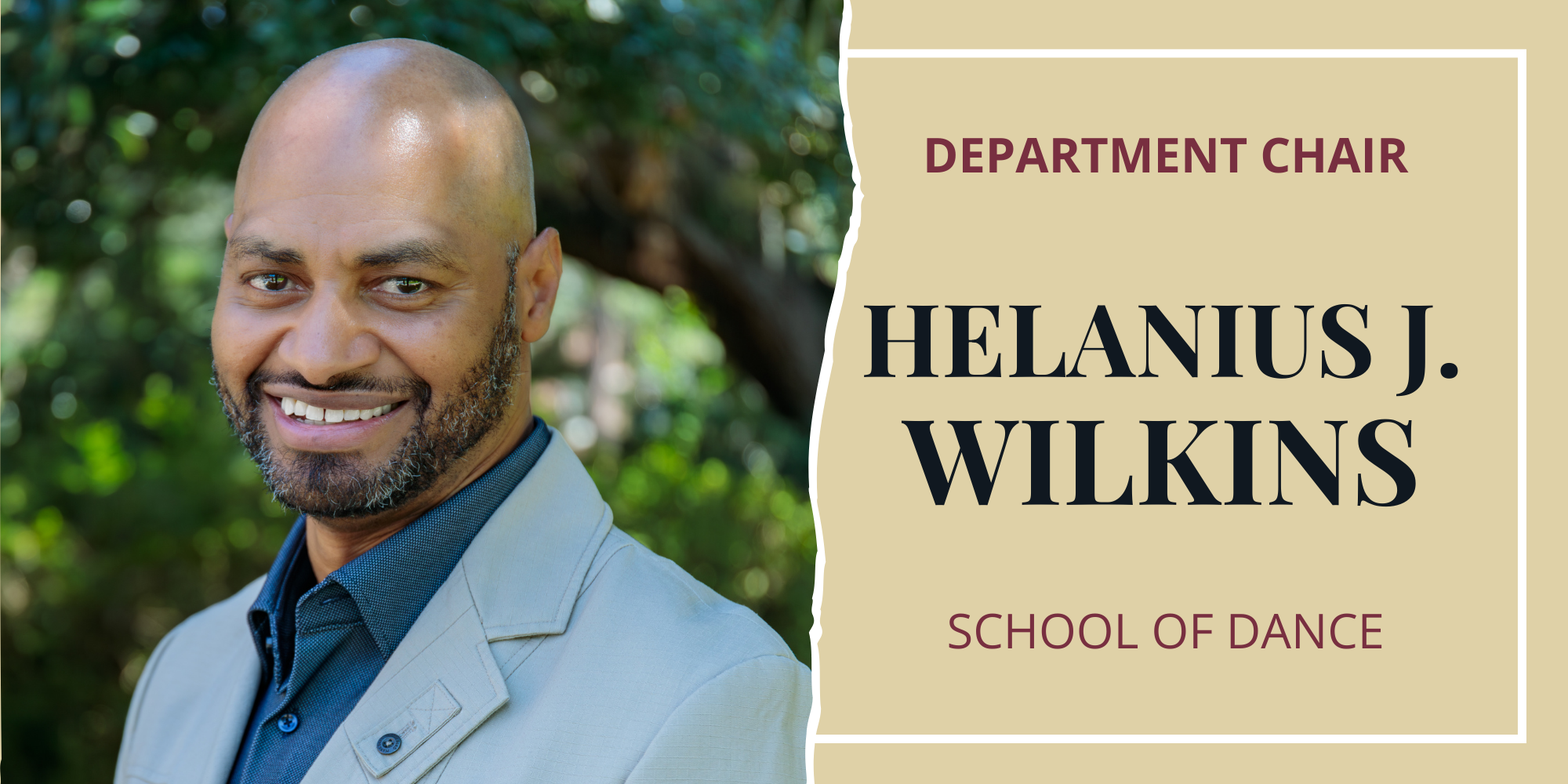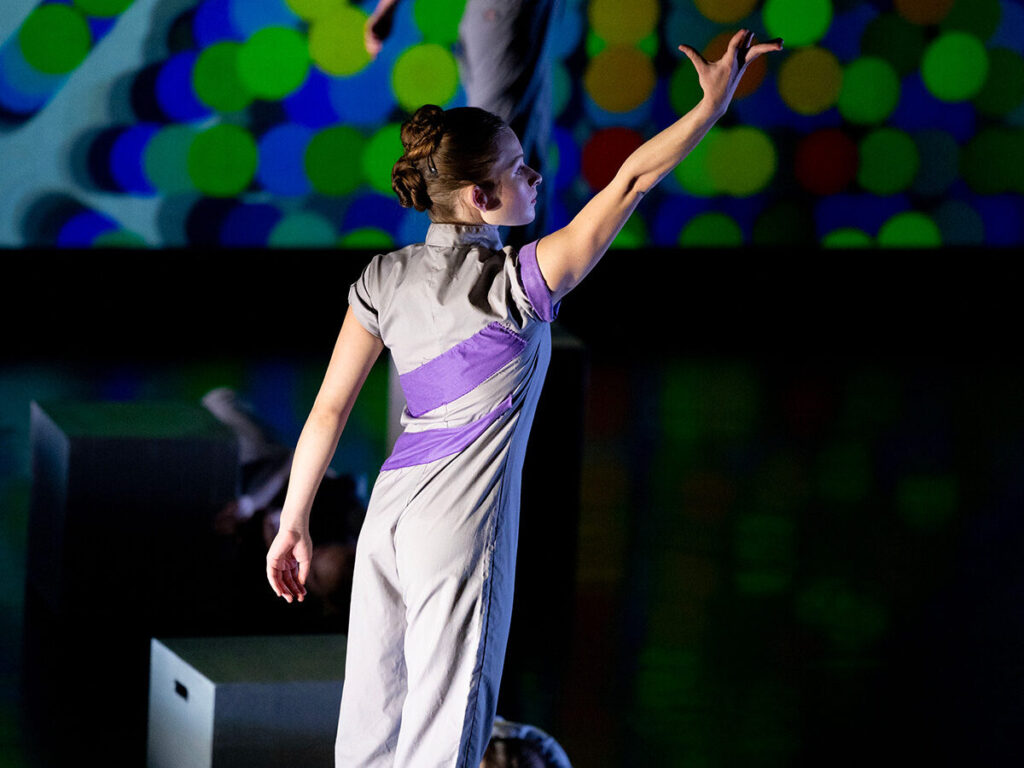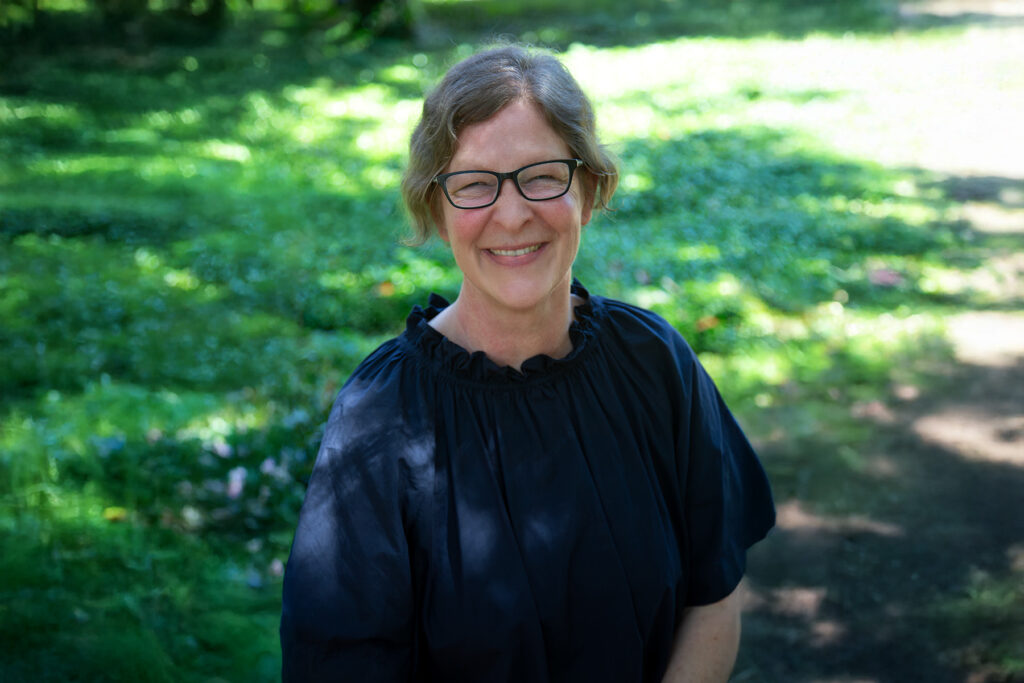
The Florida State University School of Dance welcomes Helanius J. Wilkins as its new chair this Fall.
“As dean of the College of Fine Arts and as someone deeply engaged in the field of dance, I am very pleased to welcome Helanius J. Wilkins as our new Chair,” said James Frazier. “His breadth of experience as a performer, choreographer, educator, and leader in the arts makes him exceptionally well-suited for this role. Dance has been central to the FSU experience for more than 90 years, and our commitment to the field remains as strong as ever. I am thrilled to celebrate this new chapter, confident that under Helanius’s leadership the School of Dance will continue to flourish.”
As Chair, Wilkins hopes to foster a culture of innovation, collective action, and meaningful partnerships to advance FSU’s national reputation for excellence in dance.
“I am inspired by the vibrant legacy of achievements, faculty, and alumni that define FSU’s School of Dance,” said Wilkins. “My focus will be on building opportunities that spark collaboration, deepen our academic networks, and strengthen our curriculum to meet the evolving needs of students. By leading with integrity and imagination, I look forward to shaping new futures for our community and continuing the tradition of mentorship and excellence that has made the School of Dance a leader in the field.”
My focus will be on building opportunities that spark collaboration, deepen our academic networks, and strengthen our curriculum to meet the evolving needs of students.
Helanius J. Wilkins, School of Dance Chair & Professor
Wilkins founded and led EDGEWORKS Dance Theater, a Washington, DC-based all-male, contemporary dance company, from 2001 to 2014, and continues his work as an independent dance artist. He has created more than 60 works, with choreography presented at prestigious venues including Jacob’s Pillow, the John F. Kennedy Center for the Performing Arts, Dance Place (Washington, D.C.), Movement Research at Judson Church (New York), and international stages in South Africa and the Caribbean.
With a significant body of work in screendance, Wilkins has earned praise, with films such as Dirt and EntangleMEN: From the Dugout, which were officially selected for international festivals across North America, Europe, Asia, and South America, and have garnered multiple awards, including Best Experimental Film honors at festivals in New York, Venice, Toronto, and Kolkata.
Throughout his career, his projects have been backed by the National Endowment for the Arts (NEA), the New England Foundation for the Arts (NEFA), and the National Performance Network (NPN), among others.
Prior to joining the School of Dance, Wilkins served for ten years as a professor in the Department of Theatre & Dance at the University of Colorado Boulder, where he held the roles of Associate Chair and Director of Dance.


“Having admired the energy and achievements of FSU’s School of Dance from afar,” said Wilkins, “I am looking forward to stepping into the heart of the action—being not just a witness, but an active collaborator in the successes and milestones yet to come.
This announcement comes following the retirement of former chair Anjali Austin last December. Ansje Burdick, who served as interim chair, has recently been announced as the new director of the Maggie Allesee National Center for Choreography and will begin her work in that role this Spring.
Visit HelaniusJ.org to learn more about Wilkins and his work.
